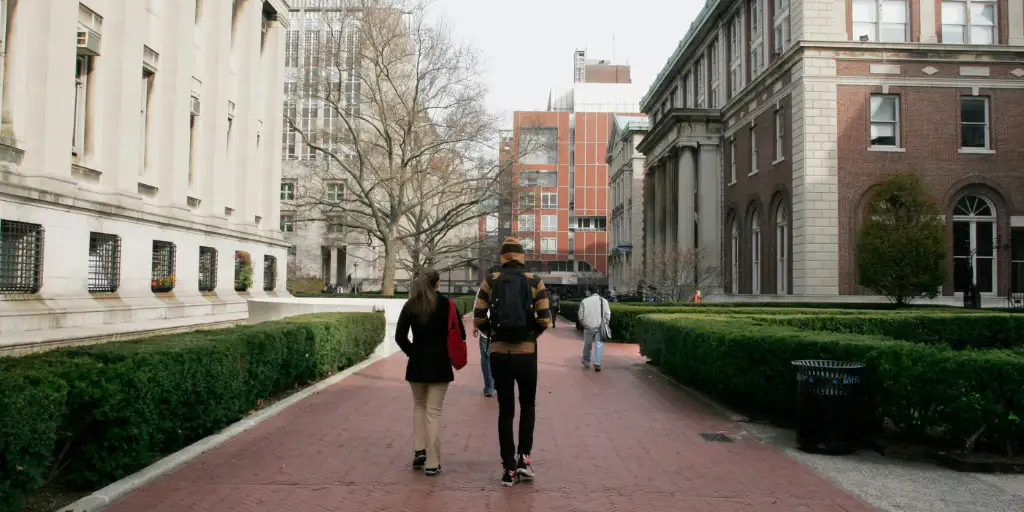Deciding where to go to college is one of the most important decisions a young person will make. Given that there are thousands of schools in the United States with unique programs, environments, and opportunities, students need to weigh a number of considerations before deciding on a school.
This writ-up explores the ten most important factors influencing your decision on college and how you can navigate this big difficult but fun journey for pursuing higher education.
Table of Contents
Academic Reputation
The college’s academic reputation continues to be the bedrock of its value proposition. Academic institutions known for having a solid reputation usually have rigorous curricula administered by skilled faculty members who are leaders in their fields.
These colleges tend to draw in huge research funding, and thus often afford students the chance to do cutting edge research of their own.
Regarding academic reputation, here are some things to keep in mind:
- Rankings by major of the programs you may be interested in
- Faculty qualifications and publications output
- Accreditation status
- Placement statistics for graduate programs
- Recognition by Industry of degrees from the institution
Keep in mind that while the big institutional rankings (like the ones put out by U.S. News & World Report) can be informative, your program of interest may have a very different reputation than the college as a whole.
Admission Requirements and Acceptance Rates
A school’s selectivity is an important piece of information to consider in your application game plan. The most highly selective institutions, which accept fewer than 10 percent of applicants, expect outstanding academic record and standardized test scores, complemented by exceptional extracurricular accomplishments.
Key considerations include:
- GPA and test scores of enrolled students
- Application requirements (essays, interview, portfolios)
- Early decision(s)/early action(s) options
- Transfer acceptance rates
- Policies on demonstrated interest
Applying to reach schools is encouraged, but having a balanced college list with target and safety schools guarantees that you will have quality options when decision time comes.
Tuition and Financial Aid
The financial effects of attending college continue long after graduation day. With average student loan debt topping $30,000, understanding the real cost of attendance at each school is crucial.
When it comes to money matters:
- Think beyond sticker price to net cost after aid
- Explore options for research merit scholarships
- Get familiar with the need-based aid formulas at each college
- Think in-state vs. out-of-state tuition differences
- Assess the repayment results for graduates
The net price calculators can help families do some initial estimating of what they might actually pay based on their circumstances; many colleges now offer them online. Keep in mind that the most expensive college is not necessarily the best and many public institutions provide exceptional value.
Employment and Career Prospects
When considering a college education, one of the most important factors is how well it prepares you for your future career. Evaluating an institution’s ability to support your professional success should be central to your decision-making process.
Key indicators of career preparation, according to experts, include:
- Job placement rates within six months of graduation
- Average starting salaries for graduates
- Availability of internships and co-op programs
- Access to career services and employer connections
- Strength and accessibility of the alumni network
Colleges that actively partner with employers and provide strong career development resources tend to help graduates transition more smoothly and successfully into the job market.
Location and Climate
The world around the college you select will influence your daily life for years to come. There are pros and cons to the urban vs. a rural campus.
Considerations of location include:
- Nearness to your internships, and any desired industry hubs
- Cultural amenities and recreational resources
- Seasonal preferences and climate considerations
- Proximity to home and ease of commutability
- Cost of living in nearby areas
Keep in mind that location will influence not only your experience as a college student but also your job prospects after graduation, since many students get jobs close to where they went to school.
Campus Facilities and Resources
Educational quality and student experience are greatly impacted by the physical environment and resources available to students. State of the art facilities with the latest technology support learning in all disciplines.
Evaluate:
- Library facilities and study areas
- Laboratory and research facilities
- Digital resources and technology infrastructure
- Sports and leisure facilities
- Accommodations and dining services
Campus tours give you a firsthand look at the quality of the facility, but don’t be shy about asking current students on campus about the resources that will mean the most for the area in which you plan on studying.
Class Size and Student-to-Faculty Ratio
Classroom learning environment impacts education outcome. Smaller class sizes generally provide greater opportunity for personalized instruction and interaction with faculty.
When assessing this factor:
- Look at the student-to-faculty ratio across the whole institution
- It’s helpful to look up what class sizes are like for your intended major
- Inquire about teaching style (lecture versus discussion-based)
- Ask about professors’ availability beyond class
- Research opportunities for summer research with faculty
If you’re someone who benefits from close interaction with professors, a supportive learning environment might matter more than the college’s name recognition.
Extracurricular Activities and Student Life
College education encompasses much more than the classroom. The diversity and quality of satellite offerings add a lot to your individual growth and happiness.
Consider:
- Organizations that are aligned with your interests
- Campus culture and the presence of fraternities and sororities (Greek life)
- Performing arts opportunities
- Varsity, club, and intramural sports
- Community service initiatives
These pursuits will not only enhance your college experience, but also hone your leadership skills and make contacts that you will find valuable for the rest of your career.
Diversity and Inclusion
A diverse campus population enhances the educational experience by exposing students to different viewpoints and preparing them to enter a more global workforce.
Evaluate:
- Demographic breakdown of the student body and faculty
- Holistic support programs that assist underrepresented students
- Campus climate and inclusion initiatives
- Representation and assistance for international students
- Services and accommodations for accessibility
Schools committed to diversity both through policy and campus culture often offer a fuller educational experience.
Conclusion
Choosing a college takes consideration of several factors based on your particular needs and situation. Although status and reputation do play a role, discovering an institution that fits your academic interests, learning style, career aspirations and personal preferences ultimately results in the best college experience.
Spend time researching thoroughly, visiting campuses where possible and talking with current students and alumni. Finally, remember that the “best” college isn’t the most prestigious it’s the one in which you will find opportunities to grow academically, professionally, and personally during this critical time in your life.

